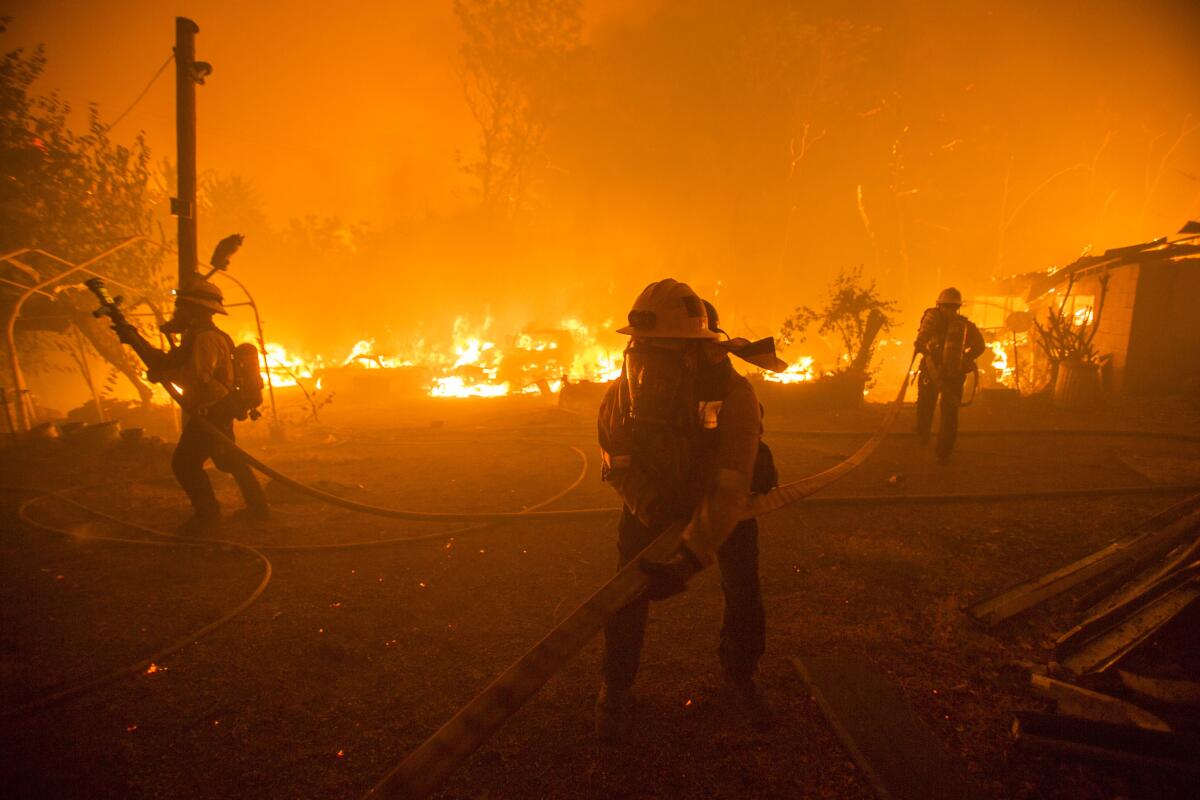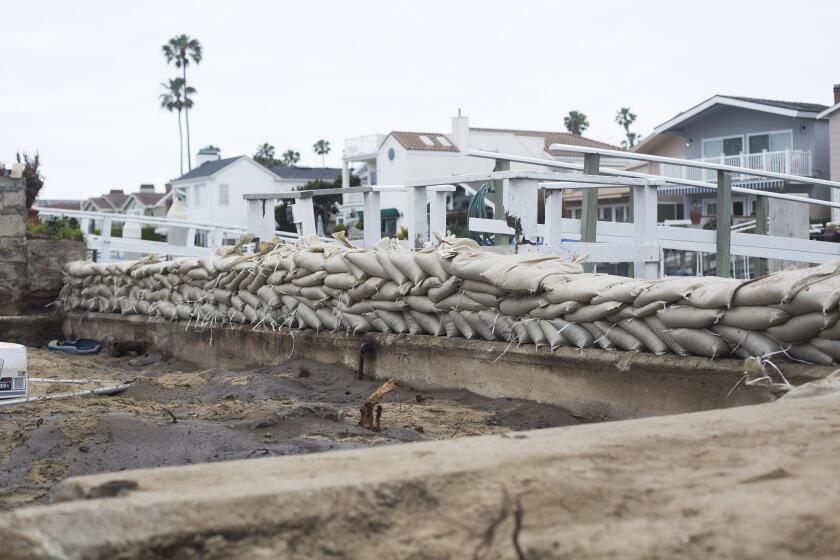Apodaca: Recognizing Orange County warriors in the fight against climate change

- Share via
The climate is changing, and to a certain extent there’s no going back. We humans have opened Pandora’s Box, and now we are reaping the consequences through the extreme events we are witnessing in real time: massive hurricanes, wildfires, floods, heat waves and droughts.
Yet, strangely enough, there is reason for optimism; that reason being the work undertaken by legions of people — more every day — who are dedicated to finding solutions. These warriors in the war against climate change are the quiet, unheralded heroes who might just be key to saving us all.
In this column, I’ll call attention to a few of them here in Orange County, all brainiacs at UC Irvine who have carved out what might appear to the general public to be dry, technical careers. Don’t be fooled. Their scholarly pursuits could help light the path forward.
Three of them are engineers, with various specialties. Engineers are the ultimate problem-solvers — practical, teamwork-oriented thinkers who see a challenge and immediately want to figure out how to meet it.
If an optimist sees a cup as half full and a pessimist sees it as half empty, an engineer surveys the situation and decides to build a better cup.
Take Brett Sanders, a professor of civil and environmental engineering.
Sanders is an expert in water, specifically flooding and erosion. One of the projects his team at UCI has been working on is to develop new models to estimate how well infrastructure can withstand compounding hazards of successive fire and flooding events — crucial information given the increasing size and recurrence of such calamities.
When I asked Sanders about risks to coastal Orange County, he said we must be concerned with the management of sediment, development and redevelopment.
As California’s forests burn and temperatures and sea levels rise, it’s time to be alarmist, writes Daily Pilot columnist Patrice Apodaca.
Historically we have managed coastline development by moving earth around and reshaping the natural landscape, often in ways that have proved impractical and unsustainable over the long run. Now, as sea levels rise, our beaches and oceanfront areas are at risk of receding into the ocean, and land further inland will become increasingly vulnerable due to the loss of protective buffer zones.
There’s no single answer to these problems, Sanders said, but there are some creative ideas. These include beach nourishment projects that use stabilizing sediment, vegetation and hard elements; moving infrastructure (yes, even Pacific Coast Highway and rail lines in some spots), and raising the height of sea level land in places such as Balboa Island and peninsula (yes, it’s possible, bit by bit).
Sanders’ colleague, assistant professor Tiirtha Banerjee, is also a civil and environmental engineer, but his area of expertise is wildfires, another immensely important area of study. He is involved in a joint project with Sanders assessing fire’s impact on water.
In a broader sense, Banerjee’s work is about trying to understand fires — why they behave as they do, where they are growing and why — and the combined effects of climate change and land-use decisions.
He is a proponent of prescribed burns, the practice of intentionally setting fires and carefully controlling them to mimic the natural cycle that was prevalent before we began routinely suppressing all fires. Absent that natural cycle, we have created environments that don’t undergo the healthy process of clearing the dense overgrowth that fuels larger, more intense fires.
Another one of their colleagues, assistant professor Christopher Olivares Martinez, is also focused on the impact of wildfires on water quality.
Fires can result in toxic substances, such as benzene from plastics and chemicals from fire suppression, seeping into soil and water. These toxins then spread and cause what he describes as a “cascading series of events” that must be monitored, studied and understood, and for which strategies must be developed. One idea that he is working on is the use of microorganisms to “cleanse” these pollutants.
Stepping away from engineering, I’d also like to highlight another UCI professor in a field that the rest of us are only beginning to appreciate because of the coronavirus pandemic — public health.
Jun Wu, whose specialty is environmental health, is researching the effects of pollution and climate change on health.
For instance, one of the many projects that Wu is working on seeks to reveal how extreme heat affects pregnancy outcomes and how the impact might be lessened through “modifiers” such as air conditioning and green space. She is also studying the effects of wildfire and smoke on health and what differences can be found among children, the elderly and those of lower socioeconomic status.
Each of these brilliant academics undoubtedly deserves to have volumes written about their work, cerebral pursuits that are light years beyond my understanding.
But they aren’t just stodgy eggheads. Far from it. As they generously discussed their research, I was also struck by their thoughtful comments about being motivated by a desire to protect future generations, of working with nature instead of against it, and of the need for us all to join together in common cause.
I’m grateful that they’re using their considerable brain power for what is arguably the greatest challenge humanity has ever faced, but they need more than gratitude. Research on climate change requires funding, and this is not the time to be stingy. The cost of not finding answers will be incalculable.
It’s not too late if we make the commitment. As Sanders said, “The story is yet to be written.”
All the latest on Orange County from Orange County.
Get our free TimesOC newsletter.
You may occasionally receive promotional content from the Daily Pilot.





